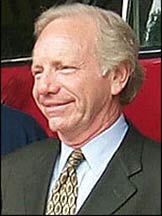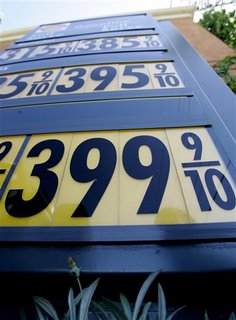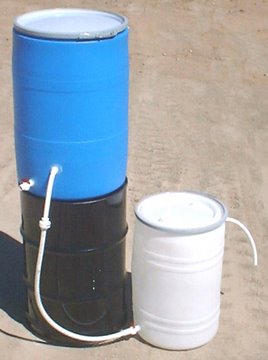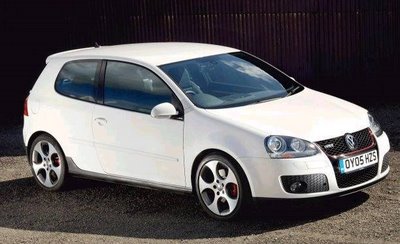 Senator Joe Lieberman of Connecticut had an Op-Ed piece in today's New York Post titled "Hot To Escape Oil" and it was interesting.
Senator Joe Lieberman of Connecticut had an Op-Ed piece in today's New York Post titled "Hot To Escape Oil" and it was interesting.I agree with much of what he says, hell it's common sense isn't it?
 I mean Gas prices aren't ever going to drop down to what they were and as he puts it "We are just one well-orchestrated terrorist attack or political upheaval away from an overnight price spike to $100 a barrel that would send the global economy tumbling and the industrialized world scrambling to secure supplies." Well mayb Joe Lieberman has overstated it just a hair, but it's the type of quote that gets your attention. Right?
I mean Gas prices aren't ever going to drop down to what they were and as he puts it "We are just one well-orchestrated terrorist attack or political upheaval away from an overnight price spike to $100 a barrel that would send the global economy tumbling and the industrialized world scrambling to secure supplies." Well mayb Joe Lieberman has overstated it just a hair, but it's the type of quote that gets your attention. Right? He's right though, most of the world's oil is controlled by people that hate US and our way of life. From that punk Chavez down in Venezuela to our "allies" in Saudi Arabia and their true allies in Iran, all love the petro dollars but most would love to see the demise of the US and our way of life.
He's right though, most of the world's oil is controlled by people that hate US and our way of life. From that punk Chavez down in Venezuela to our "allies" in Saudi Arabia and their true allies in Iran, all love the petro dollars but most would love to see the demise of the US and our way of life.
I agree with Lieberman's assertion that we must do what we can to reduce our dependance on foreign oil as soon as possible. Worl wide oil demand is growing, especially in countries like China and India, and oil is a finite resource. But I was not familiar with the "Set America Free Act" that he has introduced with others. The requirement that half of all vehicles sold in the US must be Hybrid, Hybrid/Electric Plug In or Alternative Fuel Vehicles sounds tough until you realize that it includes cars designed to burn E-85.
The interesting thing about that requirement is that it requires half of the vehicles to be from this group, but it doesn't address the availability of the Bio Fuel. I love his enthusiasm when he says "We can do it. The pieces are there just waiting to be assembled. We dont need to pry exotic technologies off the drawing board." But he seems to be oversimplifying the situation. It's not enough to demand that half of vehicles sold in the US fit the bill, it's important to have the necessary infrastructure and incentives for people to buy these vehicles.
I'm not going to pick apart Lieberman's editorial piece by piece, read it for yourself. It's an important issue, but I'm not sure that Lieberman and his co-sponsors have the answer. Or maybe they do?
I know at least their heads seem to be doing more than just holding up their hats. Alternative fuel technology is going to be key to a cleaner, safer, more economically stable United States.















